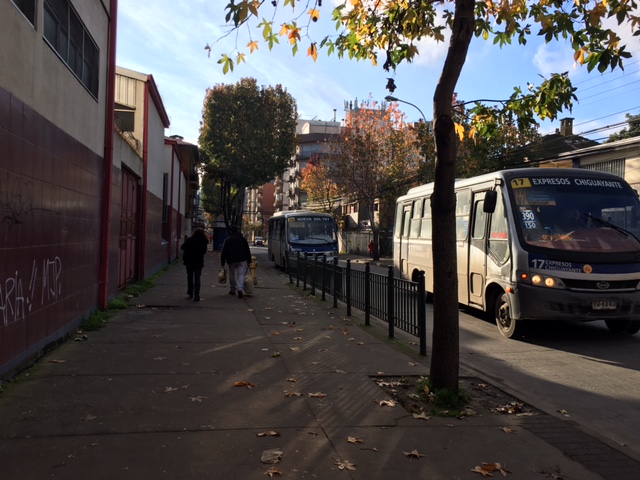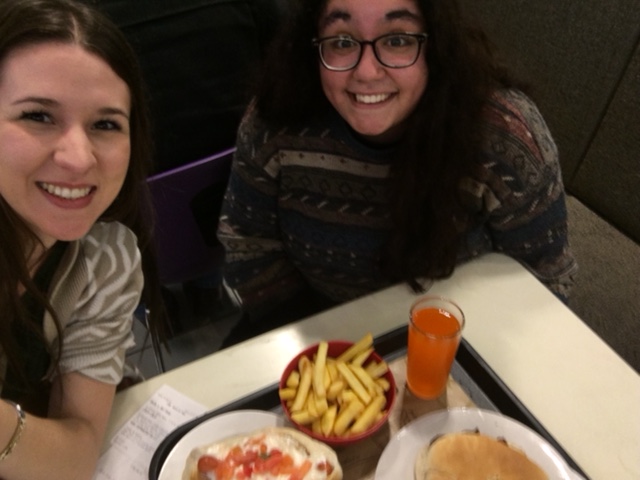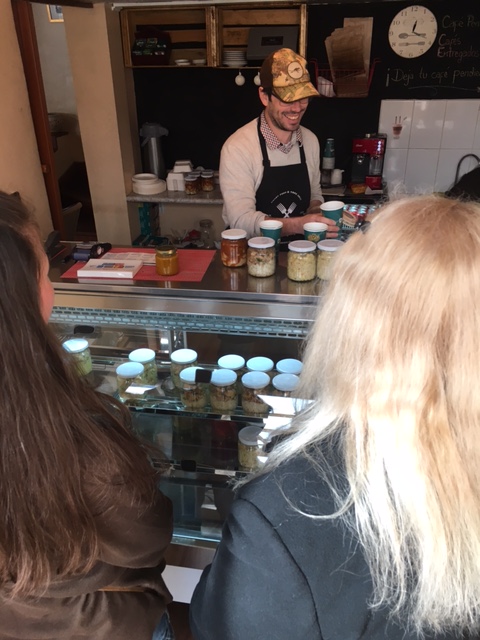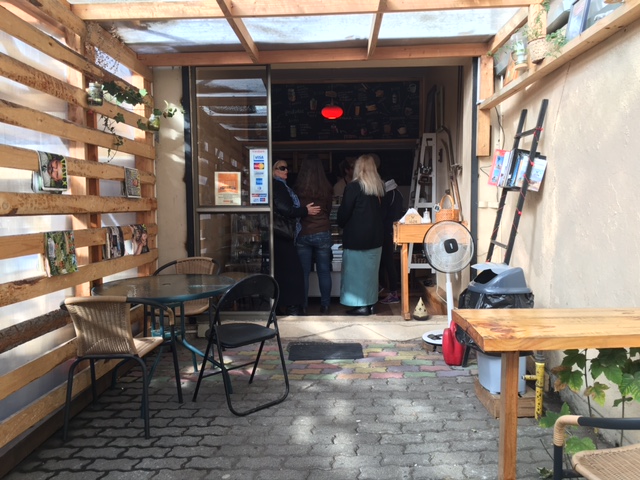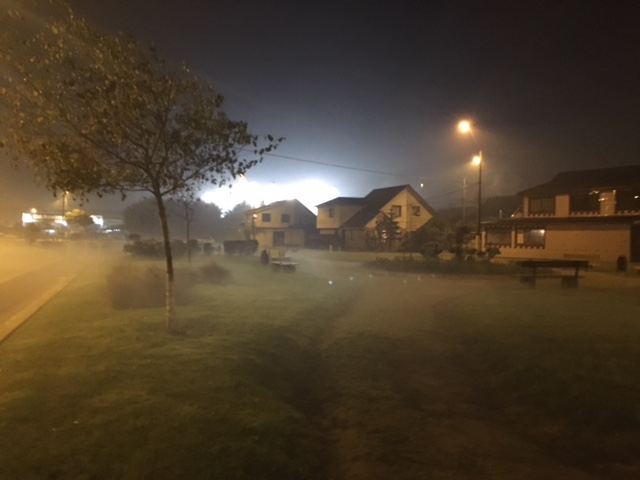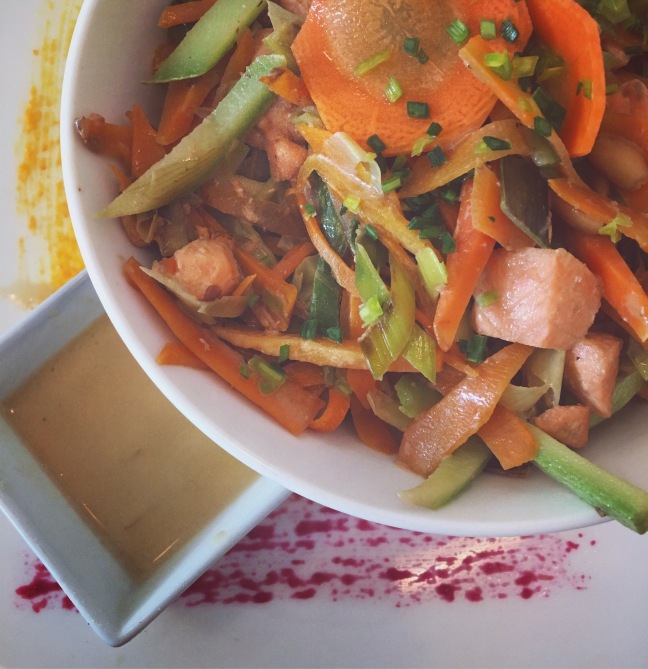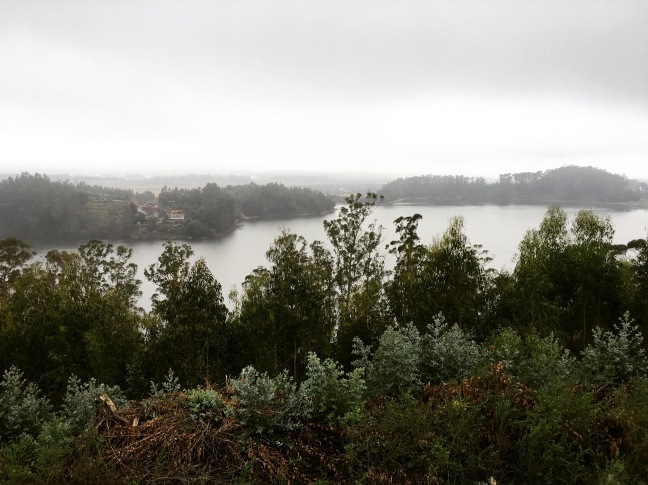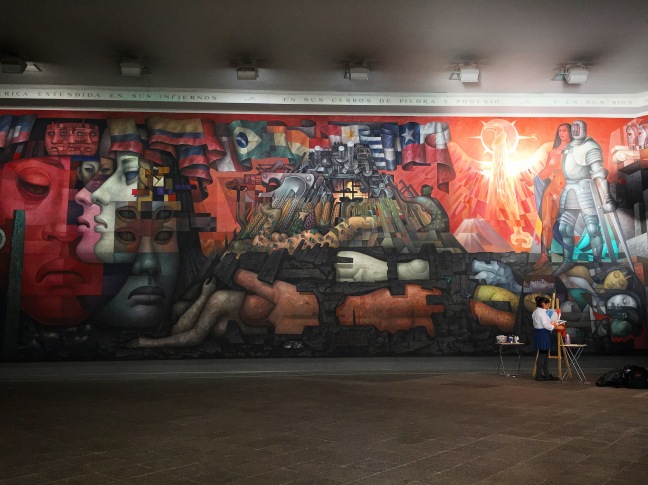Well… I knew this would happen. It has already been a while since my last post but I guess it’s a good thing that I’m keeping so busy! This post will be a little more categorical so that I will not bore you with an account of my week.
Hold tight for more pictures…
What’s happening with Vástago:
• I had a meeting with the team in charge of the website (half in Spanish, half in English) about the plans, hopes, and goals of marketing. I will be helping to capture the church in its many forms and projects through photo and video. Keep an eye out in the next month on their Facebook page.
• Ardy and Chris, the last LST team took off while the new team came in—Martin and Paulette, who are from Abilene. This couple actually lived in Santiago, Chile for about four years in the 70’s.
• I had a wonderful basic English class with more people than last week. My students are mostly early/mid-20s and 30s, and gave me a little more feedback this time, which I love! They’re learning simple, practical things, but I hope to make some connections and get to know as many people as I can.
• We’ve had some really great connections with people from all walks of life, various ages, and who are very appreciative of free English lessons. It has been a great opportunity to meet new people, show them love, and to share Jesus with them.
• The mother’s bible study has actually been one of my favorite weekly activities. I really enjoy getting to know women who all have very different backgrounds. In addition to delicious breakfasts, sharing life with these women has been simply beautiful.
What’s happening in Chile:
• Protests protests protests. Various universities are having meetings and voting opportunities to voice opinions. Some schools are striking and others are not. Many of the protests become violent, especially with the high school students. Today we had a Carabinero (cop) in the Main Street in front of the church directing traffic away from the marches headed to Plaza Peru. Yesterday was full of a joint protest of hospital workers, trabajadores, fishermen (maybe), high school students, and university students.
• Copa America is in full swing and is usually a topic of conversation—hopefully those of you from the U.S. are aware of these important soccer games since they’re taking place in The States!
What’s happening with Deanna (We spell it Diana here):
• Learning a language is hard. My Spanish tutor is wonderful, but I often become frustrated throughout the day when I cannot express what I am really trying to say. I understand quite a bit, as long as the accent isn’t too thick, but responding with complex sentences is very difficult for me. I generally do much better with one-on-one conversations, and I am forced to use the language more when I’m on my own at the store or traveling on public transportation.
• I recently accepted a Coordinator position at ACU’s Halbert Institute for Missions. I am so thankful to be able to work with the people who have mentored me since I was a freshman. Very soon after my return I will begin working full-time on the brand new program for Short-Term missions.
• My back has improved from last week, but I definitely need to keep an eye on it since I’m walking more than usual. The massages have actually turned more towards kinesiology help. I’m learning a lot of things about my injury, surgery, and resulting issues that have been extremely helpful—things that my doctors didn’t explain. I haven’t been able to breath as well since my lung collapsed during surgery, so the kinesiologist opened my rib cage and showed me some things to keep my body healthier. I can now breath better, and I understand where the pain in my lower back is coming from! God is good. I am hoping to repay this cost-free help with photographs for Kinemás—the kinesiology business.
• Part of my time here is simply to shadow the missionaries and to be spiritually guided by them. Reid is working with me on spiritual disciplines, which have always been a struggle for me. So far I have been keeping up with spending just 20 minutes with God in the mornings, before I start my day. I think of this time as exercise to make my muscles stronger as I learn to be with God and hear his voice. I may not see immediate results or have an emotional experience every time, but I’m disciplining myself to spend time with the Creator.
Cultural Things:
• I have really enjoyed learning about my father’s country, and man is there a lot to learn. I was originally stricken by how different university is in Chile, but I’m beginning to understand a bit more. Undergraduate programs here usually last 5-6 years, depending on the major. They do not take general education courses, so it seems like a lot to me! I recently realized that the last year is typically reserved only to complete a Thesis, which is supervised by a professor of one’s choosing. Careers also may encompass a wider variety of qualification as well: for example, I believe that business students typically learn business management, marketing, accounting, and so on. Spanish majors might learn linguistics, literature, and education. They definitely receive quite a bit of education, as long as the protests don’t interrupt studies too much.
• Pregnant women are really taken care of. They might have a month of leave before the due date and six months after. There are also special parking places reserved for them in many places, more so than I have seen in the U.S.
• Young people are often called “joven”, young, for quite a while (even in the late 20s). It’s very common for a person to live with their parents until they are almost 30, and to eventually have kids in early-mid 30s. Babies and young children might often sleep in the same room with parents, and grandparents will typically end up living with the family.
• I had a great talk with Feña today about international travel: it opens my eyes to realize that my way is not the only way, and that the rest of the world will think differently and act differently, and that’s okay! Understanding other world views is so important in order to know ALL of God’s creation.
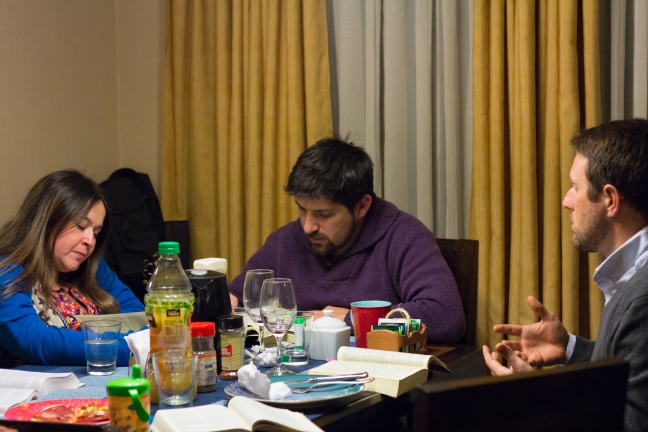









































































































































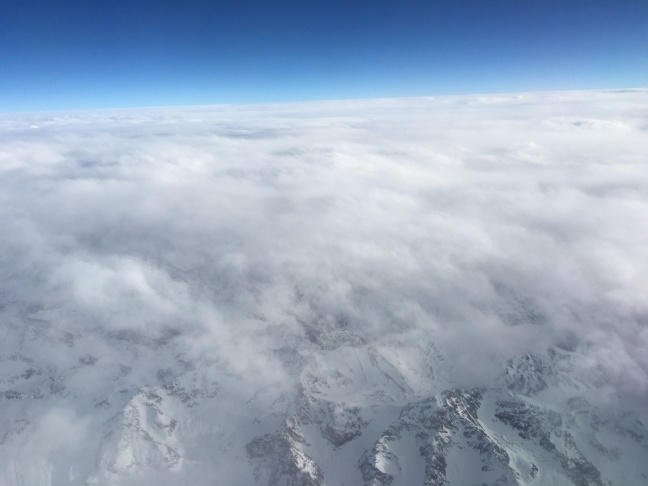
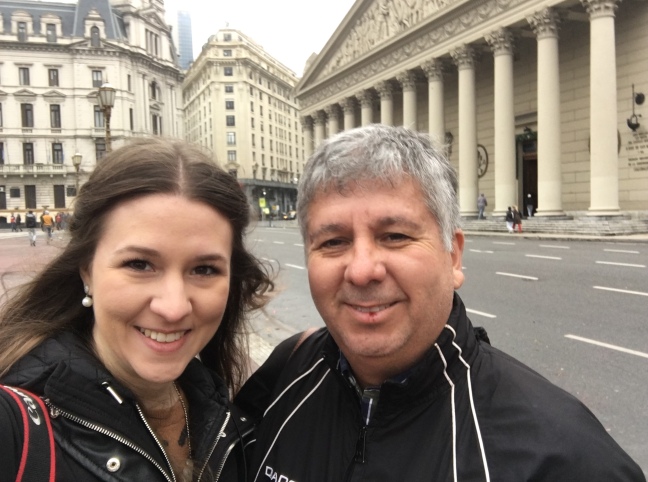










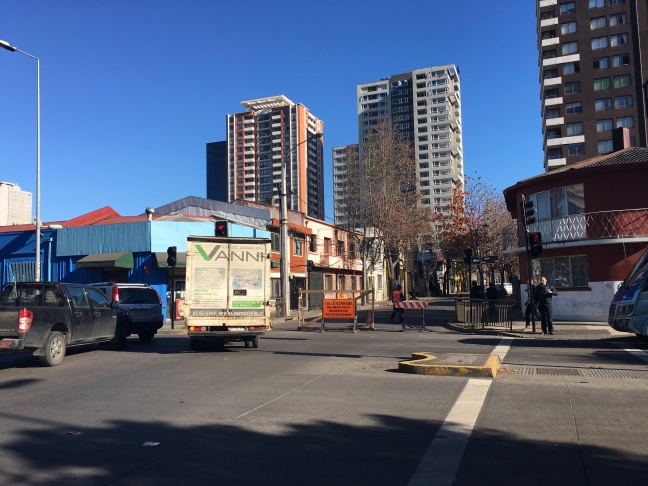




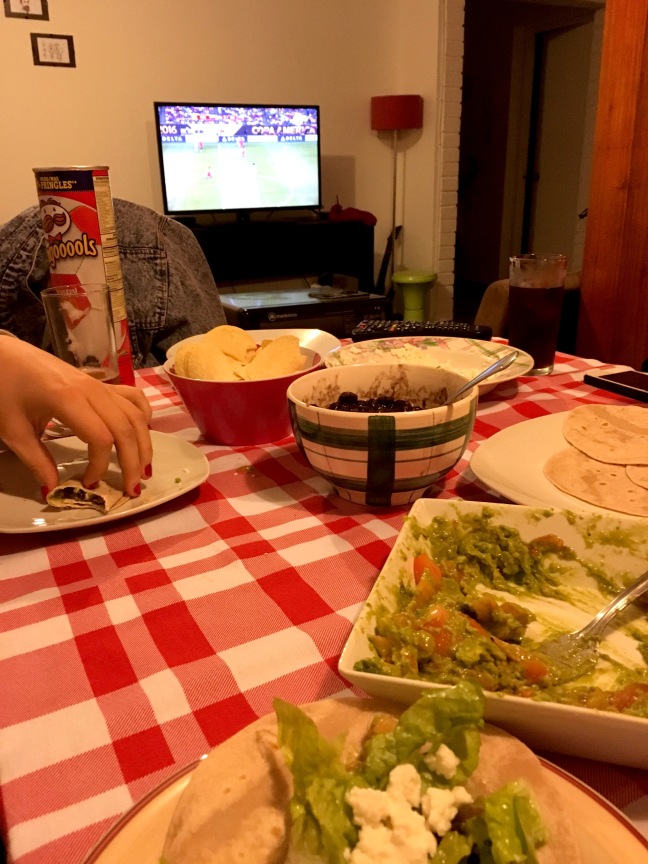















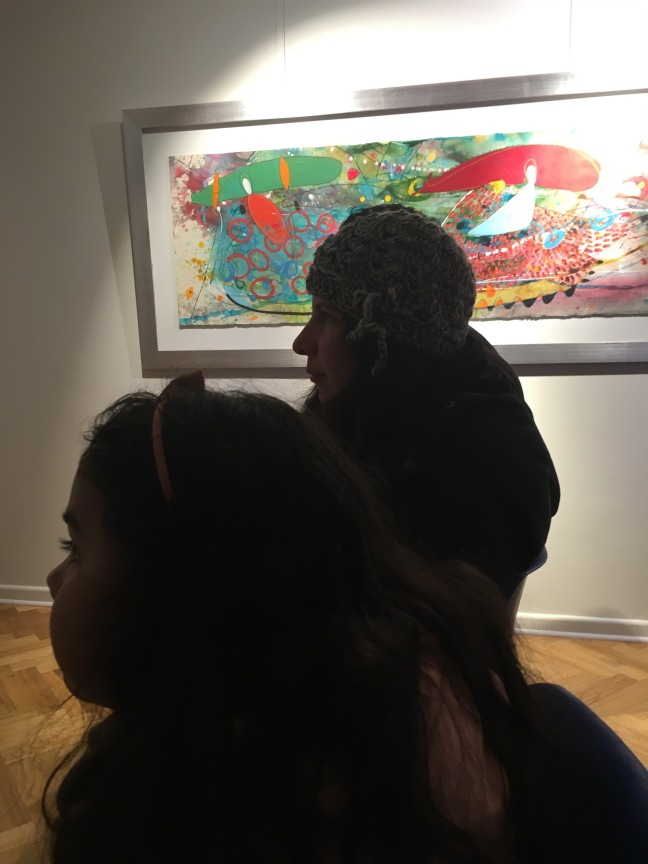 On Saturday I was able to spend the entire day with my Chilean “brother” Rubén, who made sure I had the full Chilean experience. Not only did Rubén’s father grow up with mine, but Rubén lived with my family for a whole year when I was seven. Since then I have only seen him one time, four years ago, so we had the most wonderful day together as family. We had the most typical Chilean food after our trip through the mines. Chiflón del Diablo was a functioning carbon mine for about 100 years, but is now used as a tourist attraction run by ex-miners. This national monument shares a sad history with the people in the area, all of whom worked in the mine. Young boys of 8, for example, worked for no money so that they could learn from the older men who worked for 12 hours in horrible conditions. My back was quite sore after my short trip through the tunnels, so I cannot imagine the lives of people who gave their whole lives to extract minerals that we take for granted.
On Saturday I was able to spend the entire day with my Chilean “brother” Rubén, who made sure I had the full Chilean experience. Not only did Rubén’s father grow up with mine, but Rubén lived with my family for a whole year when I was seven. Since then I have only seen him one time, four years ago, so we had the most wonderful day together as family. We had the most typical Chilean food after our trip through the mines. Chiflón del Diablo was a functioning carbon mine for about 100 years, but is now used as a tourist attraction run by ex-miners. This national monument shares a sad history with the people in the area, all of whom worked in the mine. Young boys of 8, for example, worked for no money so that they could learn from the older men who worked for 12 hours in horrible conditions. My back was quite sore after my short trip through the tunnels, so I cannot imagine the lives of people who gave their whole lives to extract minerals that we take for granted.



